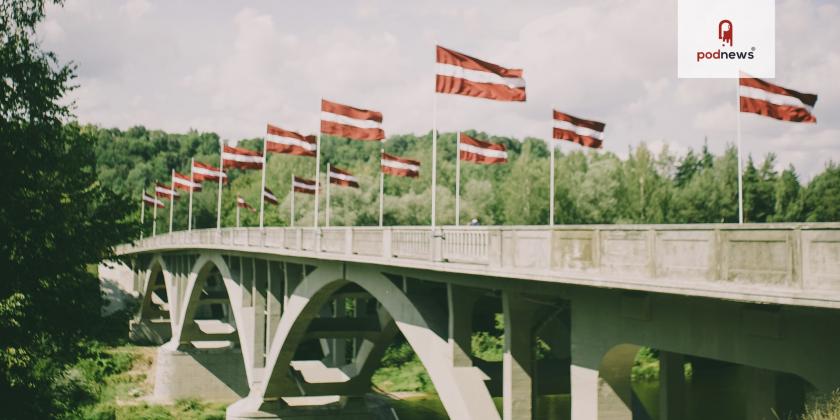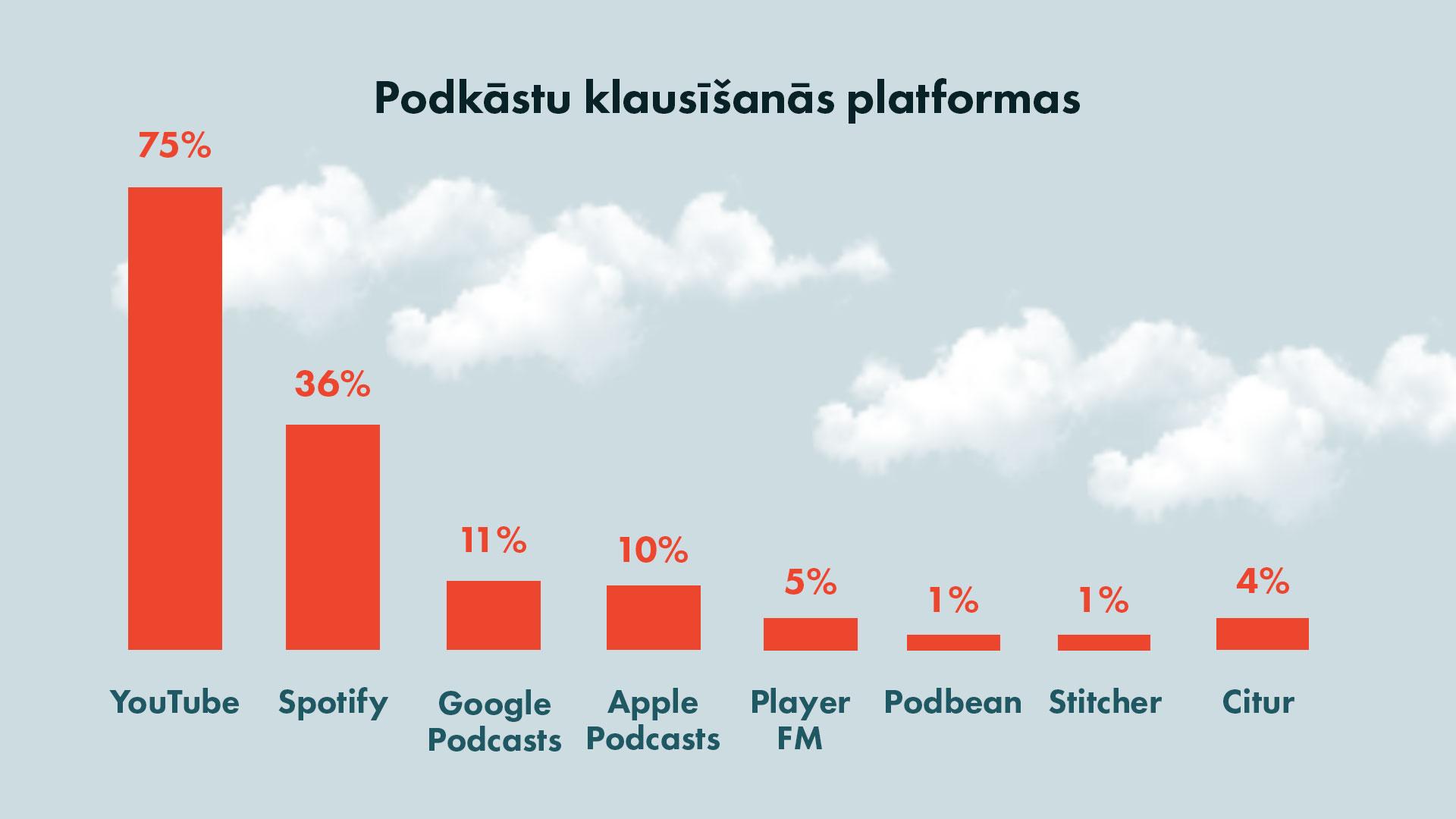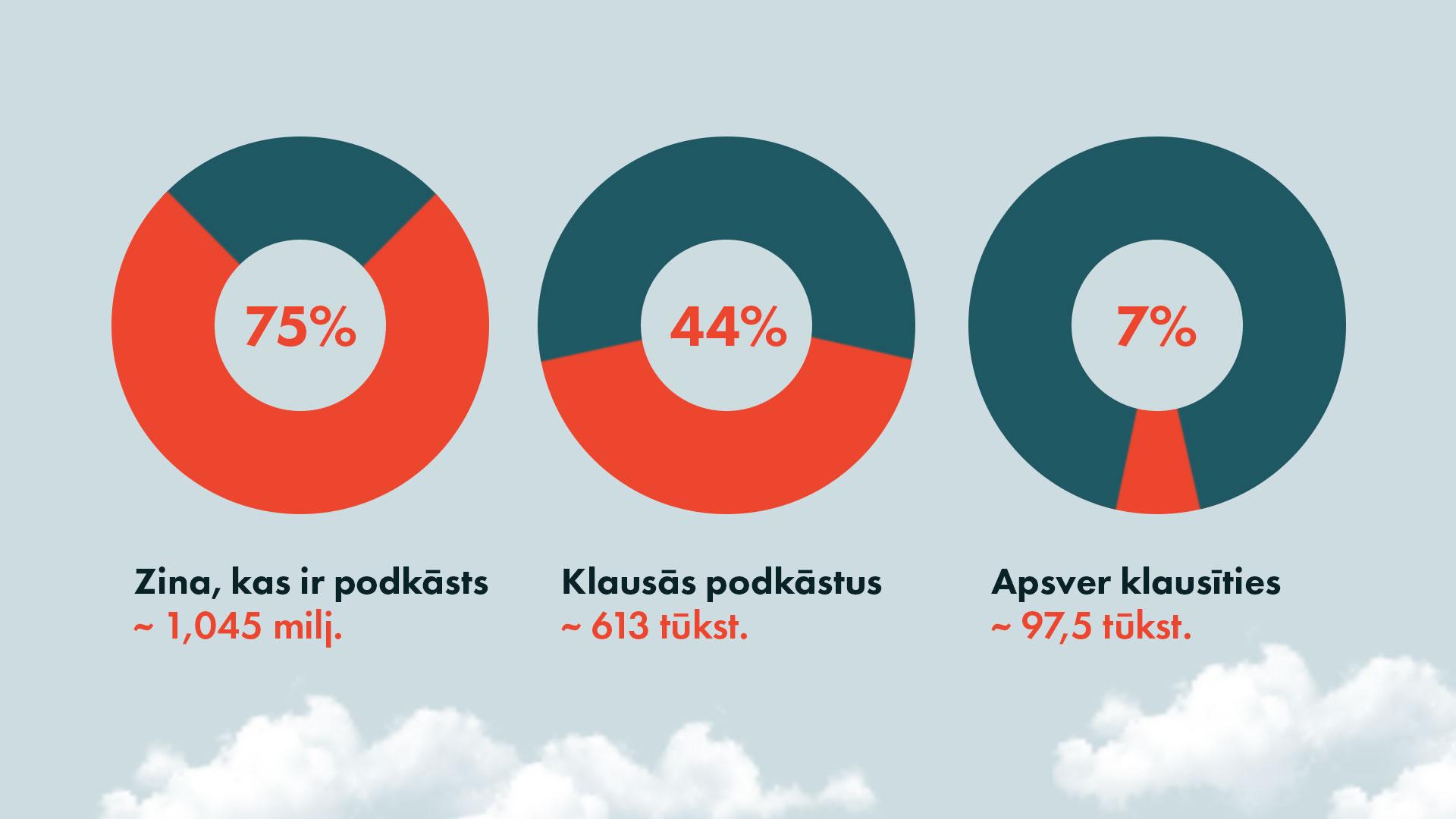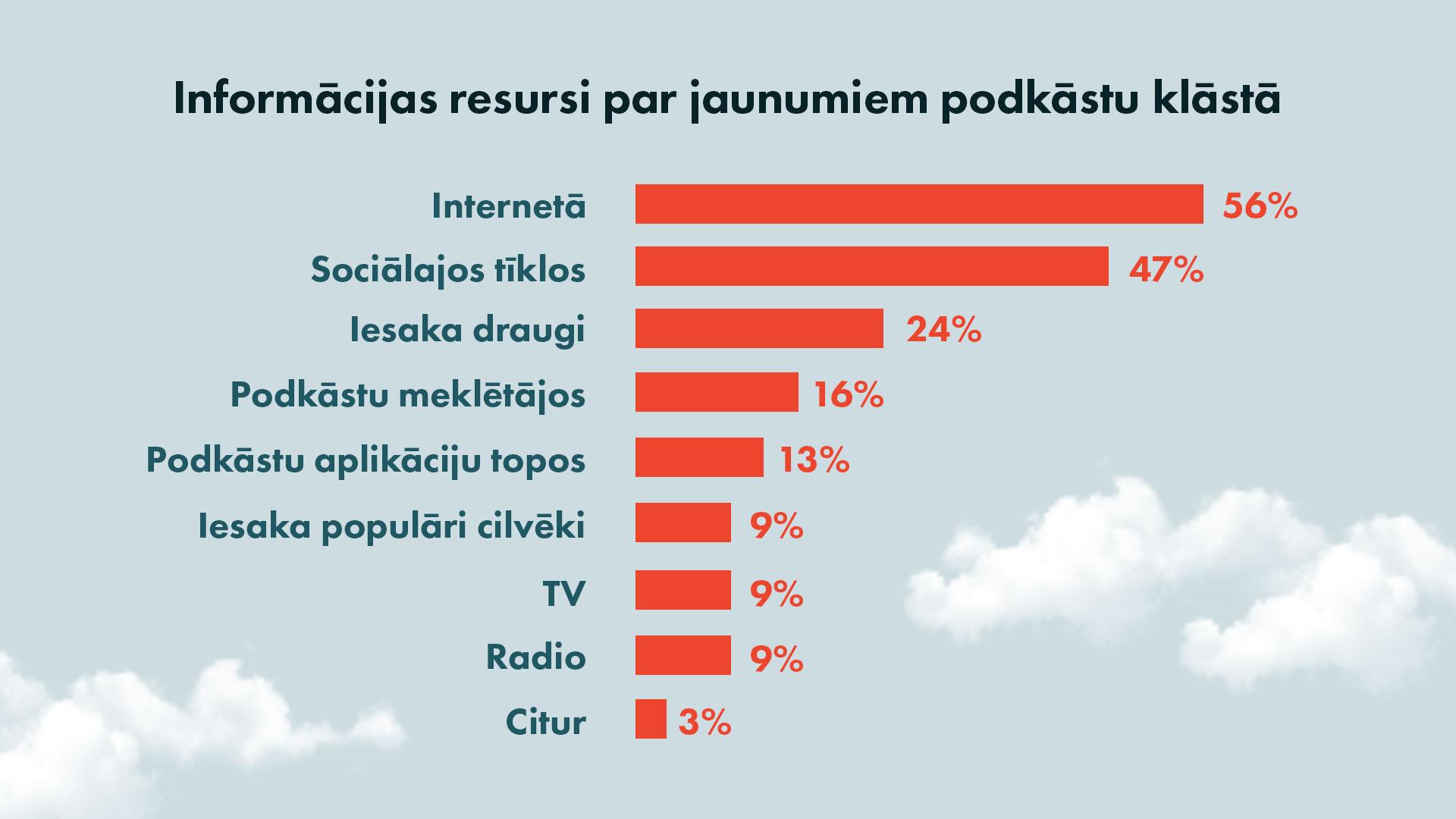
The podcast market in Latvia

This article is at least a year old
- The Republic of Latvia has a population of 1.9m people. Part of the European Union, it is on the Baltic Sea between Estonia and Lithuania.
On Sep 30 2021, Latvian public broadcaster Latvijas Radio celebrated International Podcast Day by doing an online discussion with Latvian podcasters and listeners. If you happen to speak Latvian, you can watch it here or listen here.
Included in the discussion was the results of a Latvian Radio study. It was made of 1,002 respondents aged 16-74, and was compiled using online interviews.
The main takeaways:

The terms 'podcast’ and 'vodcast’ mean much the same thing to many people - and the Latvian Radio study confirms it: 75% of respondents named YouTube as the main platform for podcast consumption in Latvia. Spotify stands second with 36%, followed by Google Podcasts (11%) and Apple Podcasts (10%).
Podcasters have to follow listeners and have to be where the listeners are: they can use YouTube as a marketing tool for their audio content.

The Latvian Radio study shows that 75% of Latvians (~1.045 million people) know what a podcast is, and 44% (~613k) have listened to at least one podcast. Only 7% (~97,5k) are thinking about starting listening.
However, all participants in the discussion agreed that these numbers are unlikely, and may have been affected by the online panel. All agreed that in reality numbers of those who has ever listened to a podcast should be lower, but those who are considering starting should be higher.
33% listen to podcasts less than once a month; 20% listen every month; and 5% listen every day.

The best way to find new podcasts are: web (56%), social networks (47%), recommended by friends (24%), podcast search boxes (16%), podcast charts (13%), influencers (9%), TV (9%), radio (9%), other (3%). Discussion guests added that the word of mouth is an important way to promote your podcast, either through interviews with other podcasters or other media.
Clubhouse discussions were helpful to promote podcasts when it was booming, platform promotions (like Apple featuring) can help but the Latvian market is so small that it is not a priority for such big platforms. Live events, too, help to find new audiences.
Social networks can be helpful but not by definition because of such different user habits: for example, you can see a promo for some potentially interesting podcast on your Facebook feed but then easily forget about it, because the next thing on your feed takes away the attention.
At this stage of podcast development in Latvia and the Baltics overall, podcasters are not competing with each other, they are helping each other. There are few hundreds of podcasts in Latvian and if one of them becomes mainstream, it would help all other Latvian podcasts to gain audiences, like it was with Serial in the US back in 2014.
Finally, podcasts are not really competing with radio. Radio can be more of a background when people want to relax and do not have to concentrate on the content, while podcasts offer a deep dive into some topics.

































































































